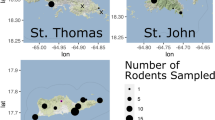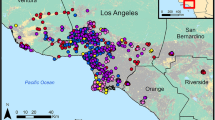Abstract
IT is generally believed that human cases of the type of leptospirosis known as canicola fever arise through man's contact with infected dogs, the dog being the only natural host and carrier of the infecting organism, Leptospira canicola. The infection in the dog may lead to a clinically recognizable disease with acute renal symptoms leading to the death of the animal ; but a milder condition may occur and may escape detection. All degrees of infection give rise to the carrier state, which may persist for months or even years, during which time the leptospiras are expelled in the urine, which thereby constitutes a potential source of infection to other dogs and man.
This is a preview of subscription content, access via your institution
Access options
Subscribe to this journal
Receive 51 print issues and online access
$199.00 per year
only $3.90 per issue
Buy this article
- Purchase on SpringerLink
- Instant access to the full article PDF.
USD 39.95
Prices may be subject to local taxes which are calculated during checkout
Similar content being viewed by others
Author information
Authors and Affiliations
Rights and permissions
About this article
Cite this article
SEILER, H., NORVAL, J. & COGHLAN, J. Leptospirosis in Piggery Workers. Nature 177, 1042 (1956). https://doi.org/10.1038/1771042a0
Issue date:
DOI: https://doi.org/10.1038/1771042a0



